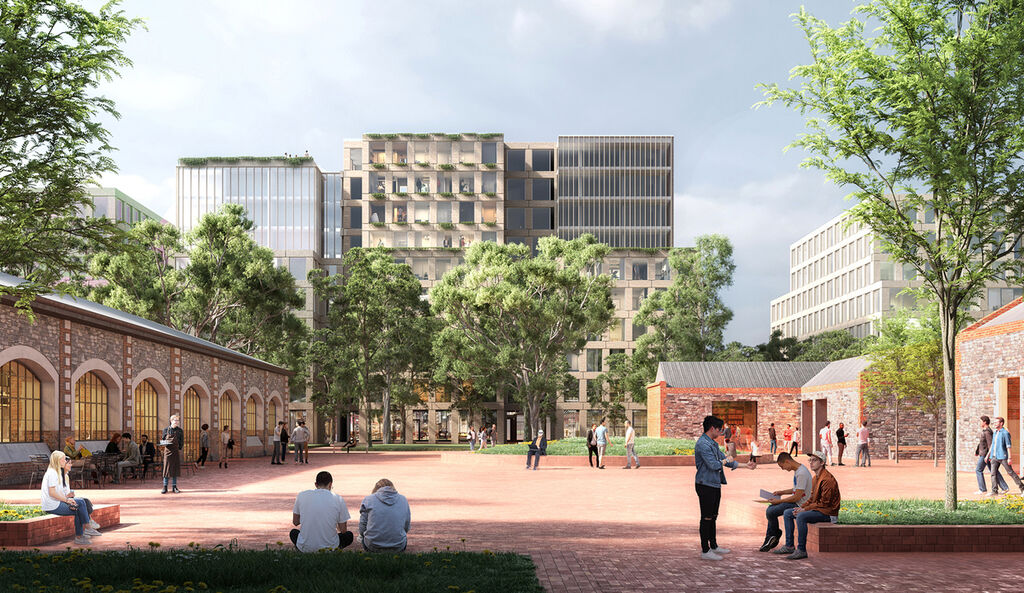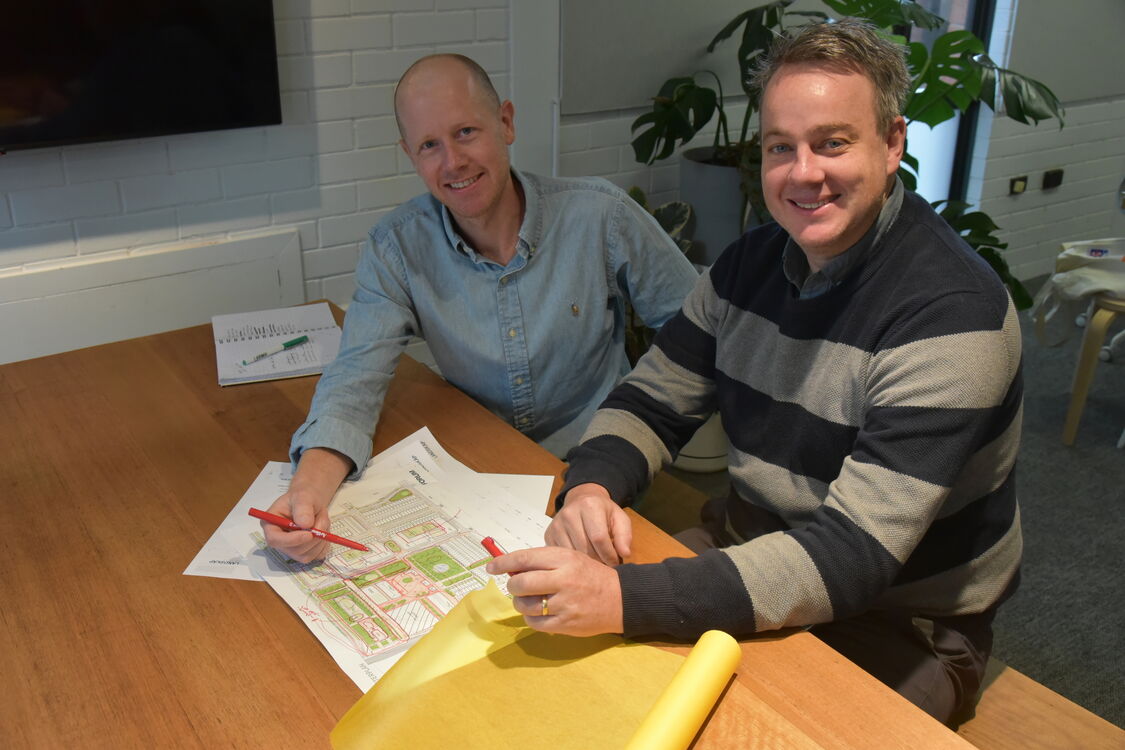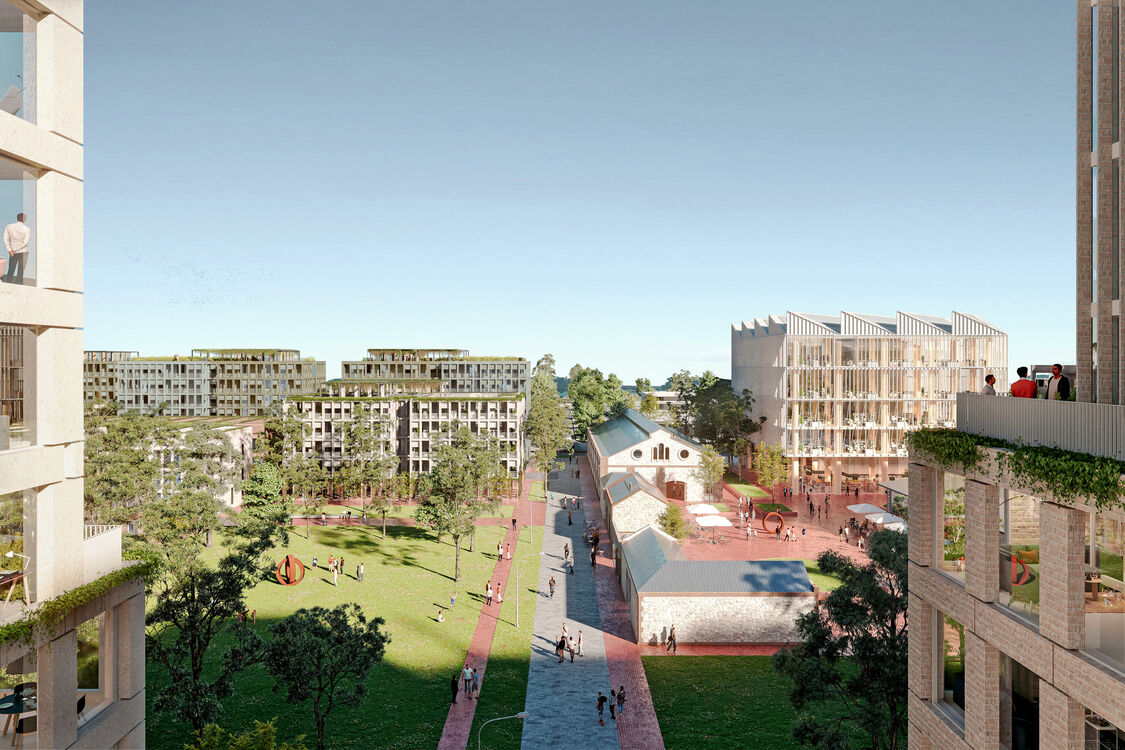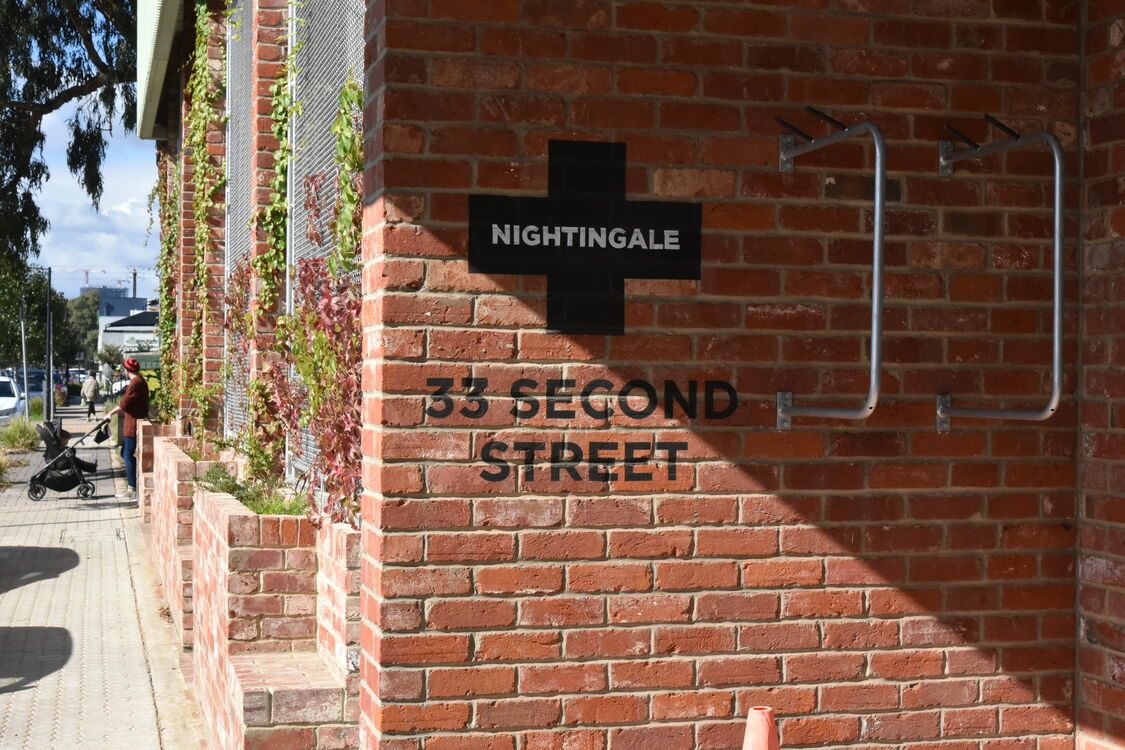31 May 2023
Both completed their studies at the University of Adelaide in 2009 with master’s degrees in architecture and landscape architecture after completing the initial Bachelor of Design Studies. Alex and Ed have remained good friends and have worked on several exciting projects together.
I spoke with them about their careers and their passion for their work was palpable. This didn’t surprise me as I remember both as enthusiastic Year 12 Visual Arts students. After university, Alex worked in Adelaide then moved to Vancouver, Canada in 2016-17, working for a large firm which carried out projects across North America. In 2019, he started Landskap, an Adelaide-based company which specialises in landscape architecture, urban design, and gardens.
‘We’ve now got a small office in Dulwich and growing year by year. I am loving my current career and feel very lucky to be where I am today,’ he said.
Ed’s first project was the Adelaide Zoo Panda Exhibit. ‘This project was a great way to finesse my skills and develop a range of experience contributing to both the internal and external elements of the project,’ Ed said. Since then, Ed has worked in Adelaide and Melbourne for a large international design firm, until two years ago, when he established his own architecture and urban design studio, FORUM.
Our conversation turned to sustainability and the importance of building for a better future. They were quick to mention the recently completed Nightingale housing project and the development of the Gasworks site, both at Brompton. Nightingale Housing is a not-for-profit organisation building apartments that are socially, financially, and environmentally sustainable. The vision is for a new housing system that is about building homes, not real estate. ‘Unfortunately, there are not enough of these projects and the vast majority of new homes are poorly built, too big, and cost a lot to live in,’ Alex said.
Ed’s studio FORUM in collaboration with Landskap (Alex) are responsible for developing the 5.8h former Gasworks site. Ed explained, ‘FORUM is recognised for inspiring projects that balance art, innovation and purpose. Great ideas, combined with the beauty of art and enduring design, through a collective and collaborative process. This development will have a world leading 6 Star Green Star Communities certified rating in environmentally sustainable practices. Ironically, the Gasworks will be a gas free precinct, with all-electric homes powered by 100% renewable energy. This ties in with the SA Government's net zero emissions target by 2050, and 50% reduction by 2030 target.’
25% of the Gasworks site will be dedicated to high-quality, publicly accessible open space where people can relax, meet, exercise and play. The preservation of heritage is a focus too, with such structures as the iconic old chimney stack being restored and featured. The site’s history as traditional Kaurna land will be celebrated as well with strategies for the respectful recognition, involvement, and advancement of the Kaurna tradition by developing a Cultural Heritage Management Plan to ensure an ongoing connection to this important site.
Ed and Alex thought that the news is positive for young people getting into the housing market. They are of the view that younger generations are becoming increasingly aware of their responsibilities for the environment and that priorities are changing. This shift should maintain pressure on builders, architects, and local and federal governments to build more sustainable projects and hopefully keep housing affordable. Alex added, ‘I see younger people prioritising a career with a purpose over one that only values monetary gain. I empathise with them entering the housing market but also feel Australians place too much importance on home ownership, especially when compared to some of the European models,’ Alex said.
Elaborating on their shared commitment to being responsible for the future Alex said, ‘The goal of sustainability, environmental and social responsibility is fundamental to our profession. Our approach to every project is based around the simple question of ‘how can this benefit the community?’ If a project doesn’t provide community benefit, then we’re doing something wrong.’
‘On a macro level, Adelaide has one of the lowest tree canopy coverage rates in Australia, and we’re now seeing how unliveable some of the new suburbs are becoming during prolonged heatwaves. Increased urban greening can assist in reducing the urban heat island effect and will improve social and community health. It should be a no-brainer for the entire city. On a micro level, we need to make our private gardens and developments work harder to provide more greening. Everyone should have access to a garden and no matter what size, our own gardens should be as important as the houses themselves. A great garden will provide wide ranging benefits beyond the property. For me, gardening is the best free medicine going around,’ said Alex.
I was curious as to how Alex and Ed made their decisions to embark on careers in architecture. For Alex it was more about knowing what he didn’t want to do. The hours were too long in Medicine and Law, while Accounting and Finance weren’t his thing. Before he knew it, he found himself doing Architecture and loving it. Alex thought that Pembroke’s autonomous approach to learning and the fact that his parents didn’t push him into any career contributed significantly to him making a career choice which was right for him. Ed’s path to Architecture was more straightforward: ‘I always had a passion for Art and Technology during my years at Pembroke, and this inspired me and led to my career path in Architecture.’
Alex added, ‘The more I think about life and my career, the more certain I am that this is what I want to be doing long term. I’m a big believer in having a purpose that makes you feel good, and hopefully doing good. Starting my own firm gave me the opportunity to ensure that every project we work on is for the right reasons, and allows us to prioritise good work over anything else. Looking back, I’ve always been drawn to the outdoors and the environment. At age 14, I started looking after the family garden, so for me it feels like it was meant to be.’
Tim O’Loughlin
Emeritus Head of Publications






